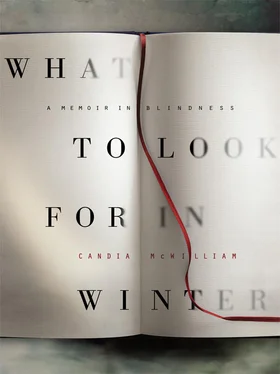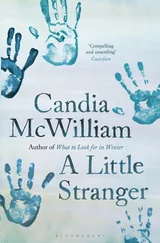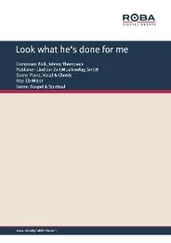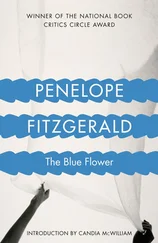The island of Colonsay is the ancient home of clan McPhee. There is in Canada a town in Saskatchewan called Colonsay, witness to the Clearances. The New Yorker writer John McPhee has written a book of lasting value about Colonsay called The Crofter and the Laird. In my life I have had the luck to have known that crofter a little; the laird is Papa about whom it is impossible for me to be objective. Even John McPhee has trouble, writing in the early nineteen-sixties, resisting him; the same goes for Ian Mitchell in his far angrier book, The Isles of the West . In addition to looking just right for the part, Papa is an astoundingly sweet fella, as he will say of others.
It is 2008 and Papa, thank God, is still alive. Nonetheless, he is known on the island as ‘the old Laird’ because he no longer lives in the big house, so it falls to his older son Alexander to be the young Laird and responsible, not unlike God in an unblasphemous way, for everything that goes wrong.
But that is now. When first I met Alexander, he was portable. I took to having little children around me with passion. The twins were six, I think. Among ourselves we use the terms brother and sister, and I fell into a habit of ambiguity. It is perhaps among our children that the position is best and most tactfully made clear. My children refer to their ‘not-cousins’ and love making jokes about how they have genetically ‘inherited’ aspects of the Howards simply through closeness and osmosis. They cannot imagine how touching this is to me or how grateful I am to them for it.
It pulls together strands that I myself cannot pull without feeling them heavy as sodden hawsers leading to sunken hulks.
Not only is there no drop of blood in common, save in the most primordial sense, but temperamentally and in every other way I am as unlike a Howard as could be, save perhaps for my height. However, I like to think that this otherness makes me of some use to them as a sort of conduit or adaptor, a useless person when many useful ones are around. The autobiography of a person even temporarily blind must skirt sentiment with care and the subject of a childhood that was at once delayed, invented and almost impossibly beautiful spells danger for the glowing, softened, recreating memory.
There were of course rocks under the dream, but they have proven negotiable, which is a benefit, insofar as I can see it, of family love. From a distance of over forty years, it is not possible for those long holidays from school not to blur into one another, though actually I can tell the years each from each in a fashion with which I won’t trouble my reader now. It was a late childhood and with very particular conditions.
When I arrived in the lives of the Howards, there was no electricity save from little coal generators that stopped at midnight and sulked if you had a Hoover on at the same time as, for example, four light bulbs. This in a house with twenty-five bedrooms, albeit eight of these simply comprising a bachelor floor, as though for visiting swains, ready for eight dancing partners. We had candles by our bedsides, stone hot water bottles, coal fires in our bedrooms and, when I first arrived, ate with the grown-ups in the dining room only on special occasions; otherwise it was the nursery. I suppose I regressed appallingly. Certainly I fell with indelicate speed into calling the parents Mum and Papa instead of Jinny and Euan. Mum read to us after tea, which arrived on a trolley: gingerbread, Guinness-and-walnut bread, drop scones, soda scones and blackcurrant jam. We played dressing-up games and every day involved a physical adventure of some sort during which I would come to some safe small harm, be chaffed a bit about it, and be nursed out of it with affection from one or other parent or child. The parents had that dash and carelessness that goes with having a large number of children. It wasn’t actual carelessness. It was confidence of the physical sort.
When I arrived, the house’s harling was weather-washed with pale pink; it is now pale yellow. At the front it holds out accommodating wings around a sweep of pebbles and an oval lawn, each wing terminating with an elegantly arched Regency window. All around the edge of its front façade at the foot are pale green glass fishermen’s floats like heavy bubbles. From the back, the house looks surprisingly French, an impression not dispelled by the palm trees and tender plants that embrace it. The lawn bends twice deeply down to a cedar tree of great size, a stream and a bridge that leads to the many scented acres of subtropical garden that rise beyond and up and over to the pond and the gulches planted by nineteenth-century enthusiasts collecting from China and the Himalayas. In May and June the deep womanly perfumes of rhododendrons and wet earth almost make the air sag. The Polar Bear Rhododendron smells of lemons and tea with cream. You could make a tea tray from one of its leaves. All rhododendrons of the family loderi have leaves whose backs are soft as a newborn baby’s head, with a downy covering called indumentum. Many of the hedges are wild fuchsia or escallonia. The fairy-like white fuchsia is the loveliest and leads to a part of the walled garden where Papa put (with much indentured child labour) the great glass ridged tower of a disused lighthouse lens from Islay. Sit within it and the world splinters into its seven constituent colours. On a bright day, screw up your eyes for a blinding white inside your head. The lens itself is big enough to hold two or three people. I have been into it once since I’ve been going blind. Its gift on that day was to dress the closest tree of pink blossom in long light-ribbons of green and blue.
The oddity of a closely remembered late childhood is that I might not perhaps remember it in such detail had it genuinely been my own. Nonetheless, it did its binding work. Above the house is a loch called Loch Scoltaire. Each child kept his or her wooden boat slung in the boathouse there. In the centre of the loch is a small island, surrounded by other islets on which terns nest and dive-bomb your head as you row or swim to the central island. There is a Victorian pleasure-house, suitable for picnics and sketching, from which, in the nineteen-twenties, Papa’s glamorous mother might have gone swimming naked before setting up her easel. One summer when Andrew was about six, it was mooted that he was brave and old enough to have me in his charge overnight for a camping expedition in the little house on the island. He was an enchanting child, with a head like a broad bean and an enormous mouth. We set out up the hill through the heather and gorse and over two rusty stiles with our equipment. Andrew was in his striped pjs, maroon dressing gown and those old-fashioned slippers that little boys used to have resembling those worn by elderly gentlemen. I can’t remember what I was wearing, but it wouldn’t have been anything like as practical as Andrew’s attire. It had been made very plain that Andrew was the expedition leader, as indeed he was, since I can’t row. We pulled out the littlest dinghy, Duckling , climbed into her, trimmed our weights as far as we could and Andrew rowed lustily to the small island where we made fast the painter.
We settled down in our sleeping bags. We had brought two eggs for the morning and firelighters and matches. I was to be on wood collection duty. The island is maybe the size of four king-sized beds, the wee house the size of one. We told one another a few scary stories and soon Andrew, dear bean, was fast asleep. The next thing I knew was that we were participants in a really creaky Enid Blyton or Swallows and Amazons plot. I heard the muffled sound of oars and saw the fairy fire. I heard the deadly tread. All the other siblings except Jane, who was too grown up, had accoutred themselves as ghouls and skeletons and beasties. Anyone else in the house who could be persuaded to come along had done so. One house guest had had the idea of laying paraffin on the water and lighting it. But Andrew and I slept through that part of the invasion. It was such a comfortable haunting, safely to be teased by people who had gone to the trouble of frightening one just enough and then arriving to reassure, so that there we all were on the tiny island inside the already small island of Colonsay, sitting in the brick house with six little wooden boats pulled up stern to and painters tied with a round turn and two half hitches. In the morning Andrew and I went home to the big house for breakfast even though our disgusting boiled eggs had been so filling and nourishing.
Читать дальше











